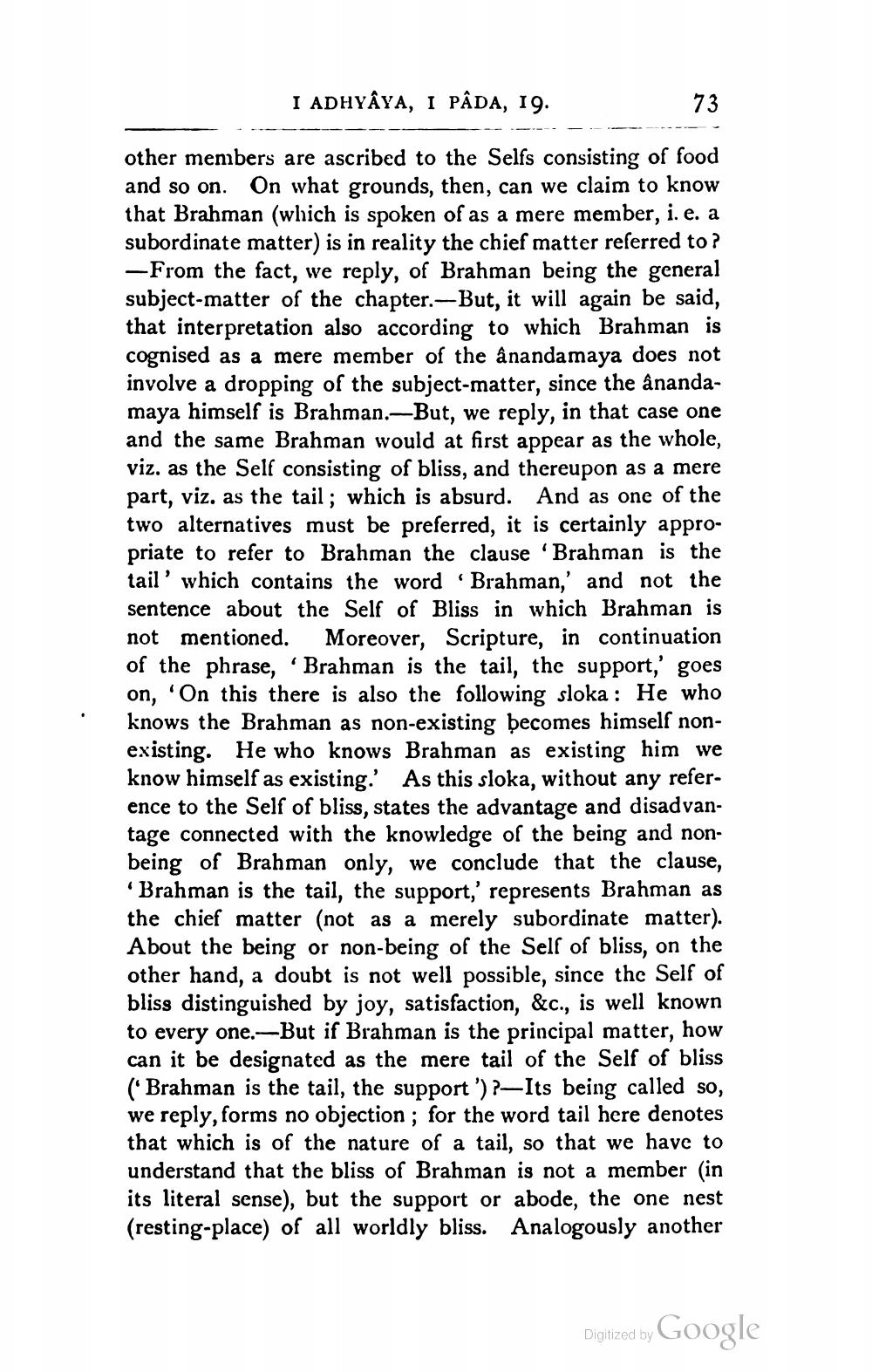________________
I ADHYAYA, I PÂDA, 19.
73
other members are ascribed to the Selfs consisting of food and so on. On what grounds, then, can we claim to know that Brahman (which is spoken of as a mere member, i.e. a subordinate matter) is in reality the chief matter referred to? -From the fact, we reply, of Brahman being the general subject-matter of the chapter.-But, it will again be said, that interpretation also according to which Brahman is cognised as a mere member of the anandamaya does not involve a dropping of the subject-matter, since the anandamaya himself is Brahman.-But, we reply, in that case one and the same Brahman would at first appear as the whole, viz. as the Self consisting of bliss, and thereupon as a mere part, viz, as the tail ; which is absurd. And as one of the two alternatives must be preferred, it is certainly appropriate to refer to Brahman the clause 'Brahman is the tail' which contains the word 'Brahman,' and not the sentence about the Self of Bliss in which Brahman is not mentioned. Moreover, Scripture, in continuation of the phrase, Brahman is the tail, the support,' goes on, 'On this there is also the following sloka : He who knows the Brahman as non-existing becomes himself nonexisting. He who knows Brahman as existing him we know himself as existing. As this sloka, without any reference to the Self of bliss, states the advantage and disadvantage connected with the knowledge of the being and nonbeing of Brahman only, we conclude that the clause,
Brahman is the tail, the support,' represents Brahman as the chief matter (not as a merely subordinate matter). About the being or non-being of the Self of bliss, on the other hand, a doubt is not well possible, since the Self of bliss distinguished by joy, satisfaction, &c., is well known to every one.—But if Brahman is the principal matter, how can it be designated as the mere tail of the Self of bliss ('Brahman is the tail, the support ') ?-Its being called so, we reply, forms no objection ; for the word tail here denotes that which is of the nature of a tail, so that we have to understand that the bliss of Brahman is not a member (in its literal sense), but the support or abode, the one nest (resting-place) of all worldly bliss. Analogously another
Digitized by
Digized by Google




